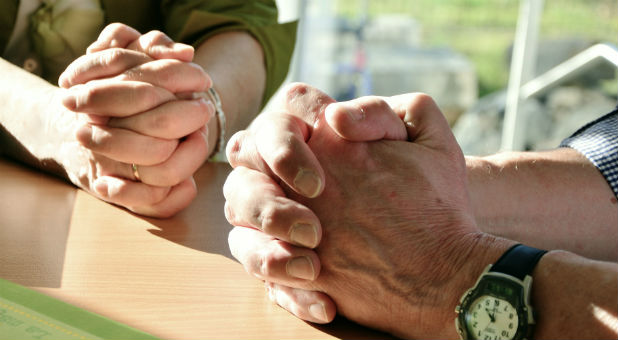How Much Longer Can We Pray in Public?
In an increasingly antagonistic environment, President Donald Trump’s overturning the Johnson Amendment was welcome news to Christianity, but not to others.
The executive order removed political restraints from the pulpit, allowing clergy to openly discuss politicians while preaching. Proponents believe the action opens the door for ultimate free speech. Opponents focused their attention elsewhere: public prayer.
“When people attend meetings of their local government, they should not have to worry about being coerced to participate in a sectarian prayer that goes against their beliefs and being discriminated against by local officials when they don’t,” says Chris Brook, Legal Director of the American Civil Liberties Union of North Carolina.
The ACLU openly targets prayer, especially in association with government institutions or schools.
“As enshrined in the First Amendment, religious freedom includes two complementary protections: the right to religious belief and expression and a guarantee that the government neither prefers religion over non-religion nor favors particular faiths over others. These dual protections work hand in hand, allowing religious liberty to thrive and safeguarding both religion and government from the undue influences of the other,” the ALCU states.
Other organizations, including the Freedom From Religion Foundation, adopt similar tactics and legally lobby against prayer.
But Christians are not without their own advocates.
The Alliance Defending Freedom stands for religious liberties, including prayer:
The Founding Fathers recognized that all people have inalienable rights that flow from the Creator. These rights are grounded in the unique, Judeo-Christian concept of man’s inherent dignity as a creature made in God’s image, endowed with reason, free will and an eternal soul.
The founders understood that one of government’s primary tasks is to preserve the freedom for each person to follow his own conscience, so they enshrined certain fundamental rights in our nation’s constitution to guarantee this freedom.
As secular forces chip away at our nation’s Judeo-Christian roots, religious freedom is increasingly threatened. Yet the First Amendment continues to reflect the Founders’ belief that “[t]he Religion…of every man must be left to the conviction and conscience of every man; and it is the right of every man to exercise [religion] as [conviction and conscience] dictate.”
As public prayer is under the gun, Christian organizations say overturning the Johnson Amendment grants a reprieve of legal persecution.
“This executive order will send a strong message to Congress and the rest of America that religious freedom must be protected. I believe we will see state legislatures take the lead to implement the protections of religious freedom much like the recent law passed in Kentucky and elsewhere,” Liberty Counsel Founder Mat Staver says of the Johnson Amendment. {eoa}
















































